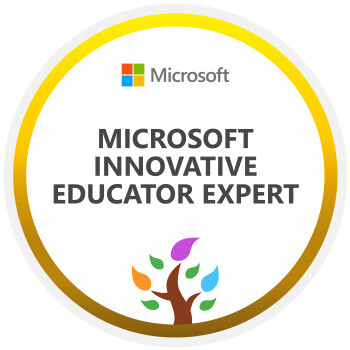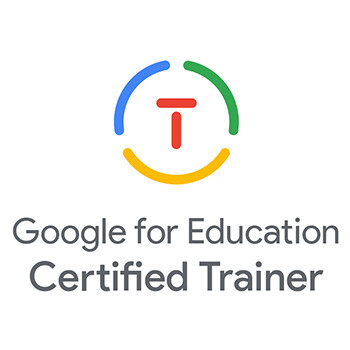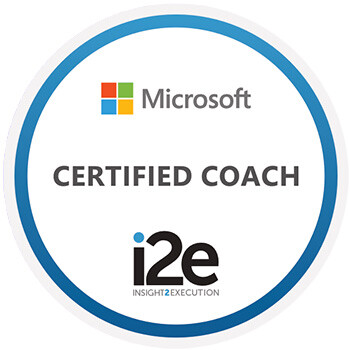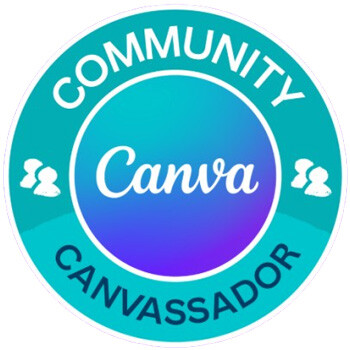Read the transcription
Sally: Hello, thank you for joining us today. My name's Sally Hodgson and I am the Head of Client Success and Training at Wavenet Education. And I'm joined by my colleague Karen.
Karen: Hello. I'm Karen Oliver and I'm a Training Consultant with Wavenet.
Sally: We are going to be focusing on a Bett roundup on all the amazing things that we saw last week. For what would be a wet, miserable January, we were inspired and full of hope for all the wonderful things that we saw from all the teachers and companies around the UK coming together to focus on making teachers’ lives easier. We're going to focus this podcast on what's new from the DfE and what it means for you in the classroom.AI integrated tools for teacher use and how to effectively implement these EdTech tools within the classroom. So one of the things that I wanted to start with is the keynote address that Bridget Phillipson, the Education Secretary, gave at the beginning of Bett. She was talking about AI - and the challenges of course that that comes with - and also about safety. As a teacher, how do you think that that will fit within the classroom?
Karen: Well, sort of having been a teacher, and working in that field, you tend to get people who are very excited about this kind of technology and some people, of course, who are quite worried about where it's leading and the issues around that. So, it's really good to know that if you have really good infrastructure and that you're using good quality software with user names and passwords and things like that, that those platforms are built with the GDPR at the absolute heart of what they do, so that is a really good way to alleviate those kind of fears that people may have.
Sally: Bridget Phillipson was also talking about the Connect The Classroom, programme which has reached now almost one and a half million pupils supplying Wi-Fi in schools, which really does give the core of the infrastructure and Wavenet supported over 90 schools and secured over £7.5 million worth of funding within that programme to support schools to get that infrastructure in place.
Karen: Yes, it's absolutely brilliant. I mean, those things are really fundamental. I mean, everybody has these wonderful ideas about doing these wonderful things with technology so to have that there is, it's really, really exciting.
Sally: The other initiative that Bridget Phillipson introduced was the planned technology for your school, which helps schools to make decisions around what technology to buy and how to utilise it properly, which will hopefully improve pupil outcomes and save money. So this is an online portal that schools can go to and to answer questions and help them to plan for the future. She's also mentioned training sessions on this assisted technology to become part of national training for teachers in 2025. What are your thoughts on that, Karen?
Karen: I think that's absolutely brilliant and she very much sort of said that for many children in tech isn't just nice to have - it's fundamental to their learning. So to hear that that's going to be really grounded in the grassroots of teacher education is really, really wonderful.
Sally: Karen, would you like to tell our listeners a little bit more about what you found out at Bett? It's a massive place with hundreds and hundreds of people and exhibitors there, you must have walked for miles and miles. What were your key highlights?
Karen: Yes, it really was. It was a. It was a fantastic experience for me to walk around and see all of these companies and the innovative things they come up with to help with education and how teachers and schools are utilising them in the classroom. So just to jump back to Bridget Phillipson’s speech, she really, really focused on the fact that that teacher pupil relationship is absolutely fundamental to education, and I know some people worry about that with the advent of AI, and if it's going to replace that, she was really, really focusing on the fact that this tech can really, really help underpin everything that's going on in the classroom. So some of the big updates, of course, we have the likes of Google and Microsoft, which we’ll draw on. So from Google we had notebook LM, which is a really fabulous tool. If you haven't had a go at it, definitely have a look at it. You can take source material, websites, documents, things like that, things that you trust, things that you know are good quality. You can put those into notebook, LM. And from that you can create lesson plans, study guides and even a podcast that your pupils can deep dive into. So if you've got a particular subject, maybe they're learning about volcanoes, you can create a little podcast so they can deep dive into that conversation a bit further. And we heard about Google Vids updates as well, so that's a really fantastic video creation tool which is great for teaching and learning, so teachers can use templates which are education focused now to create videos. And when you select a template you could go through the slides and obviously edit those as necessary and record and insert your own videos into it as well. That has music in there which you can have or switch off if you want to. And in fact, if you have Gemini, then you can create custom video decks as well with “help me create”, which is a great way of really personalising those videos for your class.
Sally: And there was a big update from Google and Canva as well. So you can now use your Google Workspace to set up your home school or MAT with Canva and you can do that really quickly in the same day. And I wanted to update our listeners with some of the new Microsoft announcements from Bett. So Math Coach is now released alongside Reading Coach. This is foundin teams and can create assignments using AI so that the math creation content is already in there for teachers to set assessments and target feedback on that too. So we know that we can use Copilot already to personalise learning and to create lesson planning. But coming out this year is Project Spark so this is utilised on copilot plus PCs. And educators could create their own interactive content using lesson plans. They might already have that they could put in and it will push out new activities to refresh, maybe some lessons that you just want to spruce up a bit for the new year and for your new classes. So this year at Bett Director of Education Nick Shea spoke to teachers and educators that were in the room regarding digital strategy. This is quite a big word and I wanted to sort of break it down a little bit and think about, from a teacher's perspective, what do you think that means for you?
Karen: Yeah, we're used to hearing lots of words bandied around in education. So digital strategy to me says that it's like a road map for schools and to help them get on board with lots of different technologies, maybe budget for the future and make sure the adoptions aren’t too overwhelming. But also maybe finding a way that everybody's using the same platform. So rather jumping between lots of different platforms and saving things in lots of different places and that sort of file management side of it as well as all those other technologies. Like learning accelerators and video technology for students as well.
Sally: Yes, that's right. So at using, you know budgeting and thinking ahead as well and streamlining, standardising so teachers that can actually just turn up and teach and get on with the job in hand that they need to be doing rather than thinking about how things work, how things are going to connect are things going to still be working by the end of the session?. Is it the same as the classroom that I was in yesterday? which takes a lot of time and a lot of energy up before teachers actually get down to the skill that they really have which is teaching and building that relationship with the students! I also wanted to touch on teacher retention because that's a big, big issue at the moment, isn't it? Karen what do you think about issues like that within the education sector?
Karen: I don't think it's any secret that that it's a real issue retaining teachers at the moment for all sorts of different reasons. But I think there's all sorts of different ways in which technology can really help with that to kind of reduce that burden and that workload and to try and strike that work life balance which teachers you know, need to be able to sort of do their job really effectively.
Sally: I think training and upskilling staff is very good bringing all this technology in but if staff are then either too frightened or unsure of how to utilise it, we want it to be a supportive tool. We don't want it to be something that's going to get in the way of teaching and learning and opportunities with the digital classroom are enormous to be able to support the curriculum, to support the children, but let's not just throw it at teachers. There's so much out there. It needs to be thought about, and that's where digital strategy is brilliant because it's your roadmap. As you said, it's a way that you can plan and standardise everything to make everybody's lives easier. So looking to move to the cloud is probably quite a frightening, thought to most people, especially teachers in the part of how is it going to change everything that I'm doing on a day-to-day basis? Is it going to cost more money to a school? What are the potential savings that you can see by moving to the cloud?
Karen: So from our experience of working with teachers at schools, quite often, schools are paying out the technologies for things when actually they could be accessing those for free. And one of the jobs that we do is to go in and show educators where these tools are and how they can utilise those within the classroom.
Sally: So absolutely standardising but one digital environment but actually getting to know what is available within that digital environment. We often do see that educators don't realise the power that they've got within the education platforms that they're using and the different tools that are in there, they just tend to be used in the same word processing documents and the basic things that everybody uses on a daily basis but actually it goes a lot more deeper than that.
Karen: Sometimes it's just about one button that they haven't really used. And when you show them what that is, it can revolutionise their working day.
Sally: So we're coming up to the end of our time on this subject today. I just wanted to sort of summarise what we've been talking about and drawing back to Bridget Phillipson’s speech, AI isn’t something to be scared of. It's gonna hopefully save time for teachers. And I just wondered if you had any final thoughts on that, Karen?
Karen: I think if people start to embrace the AI technology, and what it could do, it’s gonna really help people to reduce that time they spent creating resources and really give them that time back to develop those working relationships with their pupils in all sorts of different ways.
Sally: Thank you for joining us today, Karen. And for your wonderful insights.
Karen: My pleasure.
Sally: And we're looking forward to seeing everybody at that 2026!












